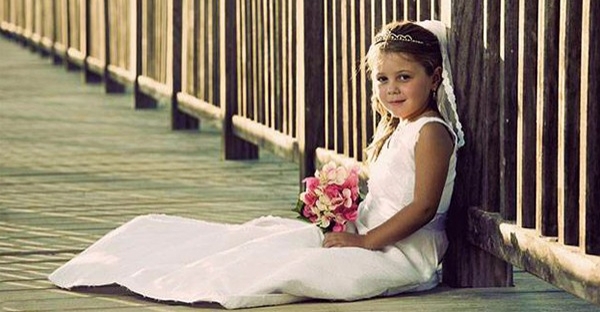Marriage of Female Minors Between Law and Religion
“In its issue of Wednesday, December 18, 2013, the As-Safir newspaper featured an article published earlier by The Monthly, in its issue of December 2013, on the marriage of female minors in Lebanon. Against the calls raised to bring to a halt this kind of marriage and whereas many assume that religion takes no action to prevent its occurrence, this article seems imperative for the purpose of elucidating the facts surrounding a matter so far-reaching in the social and psychological difficulties it may impose, especially because, according to the article, many worshippers tend to follow the example of the Prophet Muhammad (peace be upon him) who married Aisha at the age of 9 according to the historical narrative.
Religiously speaking, there exist no explicit religious texts on the appropriate age for marriage. This is as might be expected, for matrimony succumbs to norms and traditions that differ from time to time and is governed by the personal, social and financial status of each individual. Hence, it is unreasonable to mandate a specific age for marriage for everyone in all times and places.
Regarding the marriage of the Prophet Muhammad to the nine-year-old Aisha, this popular historical folklore, whether true or false, is part of the Prophet’s personal life and is not to be mirrored by all Muslims. That the Prophet followed personal ordinances that do not bind the rest of Muslims is an established and well-founded belief. For instance, night prayer was a diligence and an obligation restricted to the Prophet alone, not to all Muslims. “And in part of the night, pray during it as additional worship for you; it is expected that your Lord will resurrect you to a praised station,” said God Almighty to Muhammad.
Other historical tales hold that the Prophet grew his hair and let it hang down to his earlobes, an appearance widely practiced back then, yet less popular and less accepted in this day and age. Similarly, his marriage to the very young girl Aisha was customary at the time but is no longer prevalent nowadays, not even in the most righteous circles. Today, and out of awareness of the big responsibilities that accompany marriage and upbringing, rarely does a family marry off its son or daughter before they have gained sufficient experience and maturity for the challenges of matrimony which usually begin to develop at around the age of 18.
Hence, religion does not mind that the age of marriage be set at the threshold of adulthood recognized by the law, i.e. at the age of 18. In this way, marriage should be a two-sided choice and the woman should not feel with time that she has been forced into a union against her will and desire. This is something I have sensed myself through the testimonies of women who were married off at an early age and felt uncomfortable in their households because their parents had the final say in deciding their fate at the age of 13 or 15.
With respect to obtaining the permission of the female’s guardian- usually the father- to the marriage, all the fatwas approving the marriages of females- whether minor or adult- without the guardian’s consent hold such unions null and unenforceable in religious courts. The presence of a guardian to authorize or approve of the marriage is a condition required by the religious court and a sound statutory measure necessary to govern family affairs. The absence of a guardian makes the registration of the marriage impossible thus hindering the issuance of both a marriage certificate and authentic identification documents from the relevant authorities. In the long run, difficulties might arise in proclaiming IDs for the children, a mishap that could bring a lifetime of distress.”








Leave A Comment